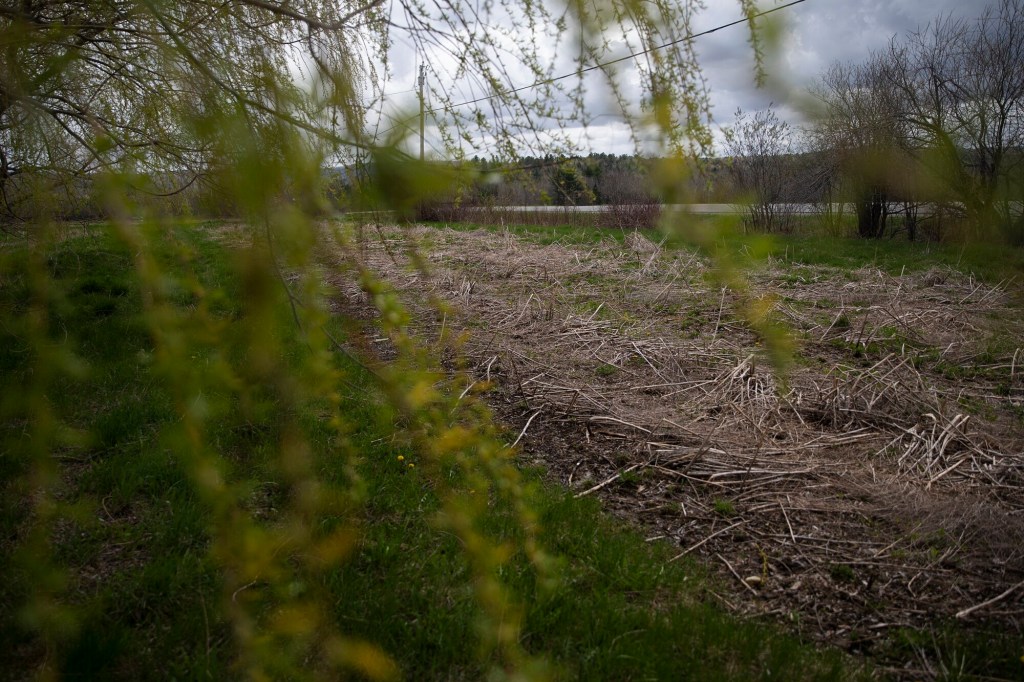
The state is funding blood tests for over 600 Maine families whose properties were contaminated by forever chemicals found in sludge-based fertilizer, taking the step to help them manage long-term health risks.
The program, led by the Fund to Address PFAS Contamination, targets households whose drinking water wells or land contain elevated levels of per- and polyfluoroalkyl substances, or PFAS, from the use of agricultural fertilizer derived from treated sewage sludge.
Because they can repel heat and water, these manmade compounds are used to make an array of consumer and industrial products. But they can also pose serious health risks, ranging from high cholesterol and obesity to kidney and testicular cancer.
The state’s decision to cover the cost of the blood testing, a procedure that can cost $400 to $600, represents a critical turning point in Maine’s PFAS response — a transition from tracking more than a thousand potential contamination sites to providing direct medical intervention to people in areas with the highest levels of the chemicals.
Maine began its investigation into PFAS contamination in 2021 after elevated levels of forever chemicals were found on several farms with a history of sludge-derived fertilizer use, some dating to the 1970s.
The ongoing investigation into more than a thousand sludge-spreading permits has uncovered high PFAS levels at about 90 farms to date. But the contamination has also affected people who live on former farmland, as well as neighbors. Farmhands are also likely affected.
Using water and soil test data from the three state agencies overseeing the investigation, Maine’s $60 million PFAS fund sent letters last month to more than 600 state-identified households with high PFAS levels to inform them of their eligibility for state-funded medical testing.
Fund director Beth Valentine talked about the program during last week’s quarterly meeting of the fund advisory board. The fund has designated $7.3 million for direct medical costs, she said. She has budgeted about $400,000 to cover this first round of blood serum testing.
Eligible households either have well water that tested over the state drinking water standard of 20 parts per trillion of six specific PFAS compounds when tested by the state, or soil that tested over 170 parts per billion of PFOS, a chemical often used in firefighting foam and textiles.
Any household occupant or farmhand is eligible for the free PFAS blood testing, Valentine said.
The state has received a couple dozen responses to the first round of letters sent out on Sept. 24.
Authorization letters can be taken to a primary care physician who can order the test, which is a simple blood draw. That blood will be analyzed by the state’s designated lab for seven common PFAS compounds identified by the National Academies of Sciences, Engineering and Medicine.
This panel provides a personalized baseline of exposure to these chemicals, which can persist in the human body for years. Anyone who tests above 20 nanograms per milliliter for these seven PFAS, combined, is at high risk of adverse health effects, according to the NASEM guidelines.
The patients can use these results and follow-up tests to know if efforts to reduce their exposure to PFAS through the installation of a water filter, abandoning a tainted field or weaning a herd of cows off contaminated feed or pasture is working. They can also be used to guide medical care.
Abby Fleisch, a pediatric endocrinologist at MaineHealth who is researching the health impacts of PFAS exposure and treating affected children, emphasized the results are not a diagnosis but a critical starting point.
CHANGING THE CONVERSATION
“Having a number changes the conversation from abstract anxiety to concrete risk management,” Fleisch said. “The results tell us what to be on the lookout for and can then be used to guide long-term clinical care.”
If a patient’s blood levels exceed this threshold, the medical guidelines recommend a specific schedule of long-term screening, Fleisch said, including high cholesterol for children, testicular cancer at age 15, thyroid function starting at age 18, and kidney cancer at 45 years of age.
This proactive clinical monitoring is designed to catch associated conditions earlier, which can significantly benefit a patient’s long-term health prospects, said Fleisch, who runs a federally funded research program on PFAS exposure and mental health in central Maine communities.
Fleisch and her colleague, Dr. Rachel Criswell, a family physician in Skowhegan, are exploring ways to use cholestyramine, an older medication used to treat high cholesterol, to help the body excrete the chemicals. This research offers a glimmer of hope for future treatment strategies.
The Legislature is considering a bill that remains on the appropriations committee funding table that would require health insurance companies to provide coverage for PFAS blood serum testing.
The PFAS fund advisory board will consider paying the $200,000-a-year cost of this bill out of the fund at its next meeting.

We invite you to add your comments. We encourage a thoughtful exchange of ideas and information on this website. By joining the conversation, you are agreeing to our commenting policy and terms of use. More information is found on our FAQs. You can modify your screen name here.
Comments are managed by our staff during regular business hours Monday through Friday as well as limited hours on Saturday and Sunday. Comments held for moderation outside of those hours may take longer to approve.
Join the Conversation
Please sign into your CentralMaine.com account to participate in conversations below. If you do not have an account, you can register or subscribe. Questions? Please see our FAQs.